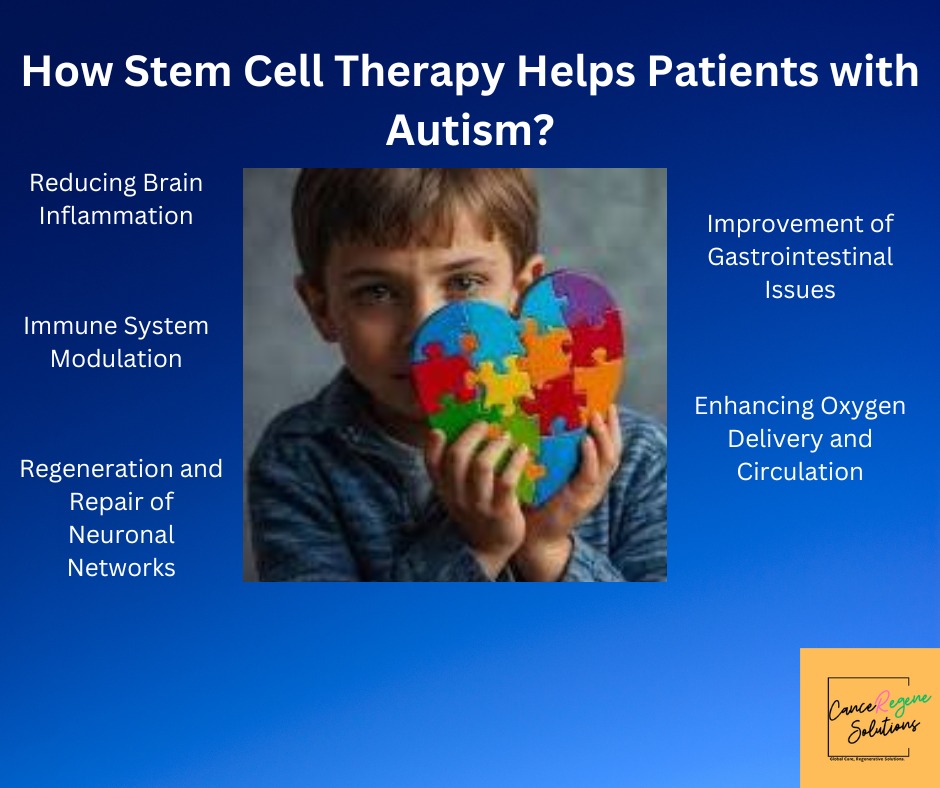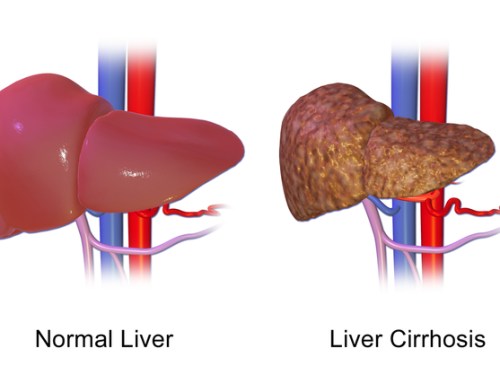
Stem cell therapy is an emerging and innovative approach to treatment for Autism Spectrum Disorder (ASD), aiming to target some of the underlying causes and symptoms associated with the condition. Although autism is a complex neurodevelopmental disorder with no known cure, stem cell therapy offers potential for improving the symptoms and quality of life of individuals with ASD by targeting brain inflammation, immune dysregulation, and abnormal neural connectivity.
How Stem Cell Therapy Helps Patients with Autism:
Stem cell therapy works by regenerating damaged or dysfunctional cells, reducing inflammation, and modulating immune responses, which are thought to play a role in the development and severity of autism symptoms.
-
Reducing Brain Inflammation
- Many children with autism show signs of neuroinflammation in the brain. Stem cells, particularly mesenchymal stem cells (MSCs), possess strong anti-inflammatory properties. When injected into the body, they can reduce inflammation in the brain by releasing cytokines (anti-inflammatory molecules), potentially improving symptoms related to behavior, cognition, and social interaction.
How it Helps:
- Reducing brain inflammation can result in improved neural functioning, possibly improving communication, speech, and social skills.
-
Immune System Modulation
- Some children with autism show signs of immune system dysfunction or autoimmune issues. MSCs are known to modulate the immune system, helping to restore a healthy immune balance. This can reduce abnormal immune responses that may contribute to brain dysfunction or neurodevelopmental issues in ASD.
How it Helps:
- Through the regulation of the immune system, stem cell therapy may reduce the neurological symptoms that stem from immune dysregulation, leading to behavioral improvements.
-
Regeneration and Repair of Neuronal Networks
- Autism is thought to be linked to irregular neuronal connectivity in the brain, which results in disrupted communication among neurons. Stem cells possess the ability to convert into neural cells, potentially repairing damaged neurons and fostering the development of new, healthy neural networks.
How it Helps:
- This regeneration may improve cognitive function, motor skills, and even speech abilities, contributing to overall behavioral improvement.
-
Improvement of Gastrointestinal Issues
- Many children with autism suffer from gastrointestinal (GI) issues, which can exacerbate behavioral problems. Stem cells, particularly MSCs, have demonstrated potential in healing the gut lining and reducing inflammation in the digestive system. Since the gut-brain axis is an important factor in overall health and behavior, improving GI health could positively impact autistic symptoms.
How it Helps:
- Addressing gastrointestinal inflammation may reduce discomfort, irritability, and behaviors related to poor digestion, such as tantrums or repetitive behaviors.
-
Enhancing Oxygen Delivery and Circulation
- Some studies suggest that children with autism may have impaired blood flow to certain regions of the brain. Stem cells can help enhance oxygen delivery and improve blood circulation to these areas, possibly helping to normalize brain activity.
How it Helps:
- Better oxygenation and circulation may lead to improved brain function and symptom management, including enhanced focus, learning, and emotional regulation.
Clinical Research and Trials on Stem Cell Therapy for Autism:
Stem cell therapy for autism have shown promising results. Some reported improvements include:
- Enhanced social behaviors: Increased eye contact, improved engagement with peers and family, and better communication.
- Cognitive and speech improvements: Some children showed better verbal communication, comprehension, and focus after stem cell treatment.
- Reduction in repetitive behaviors: Decreased repetitive movements or behaviors associated with autism.
- Improvements in hyperactivity: Some studies have noted reduced hyperactivity and improved attention span in children with autism after receiving stem cell therapy.
Conclusion:
Stem cell therapy presents an exciting potential for helping patients with autism by targeting brain inflammation, immune dysfunction, and neuronal damage. While it cannot cure autism, It has the ability to ease fundamental symptoms and enhance the overall well-being of individuals with ASD.
Contact CanceRegene Solutions for more details and for free online consultation with our affiliated Stem Cell Specialist.

